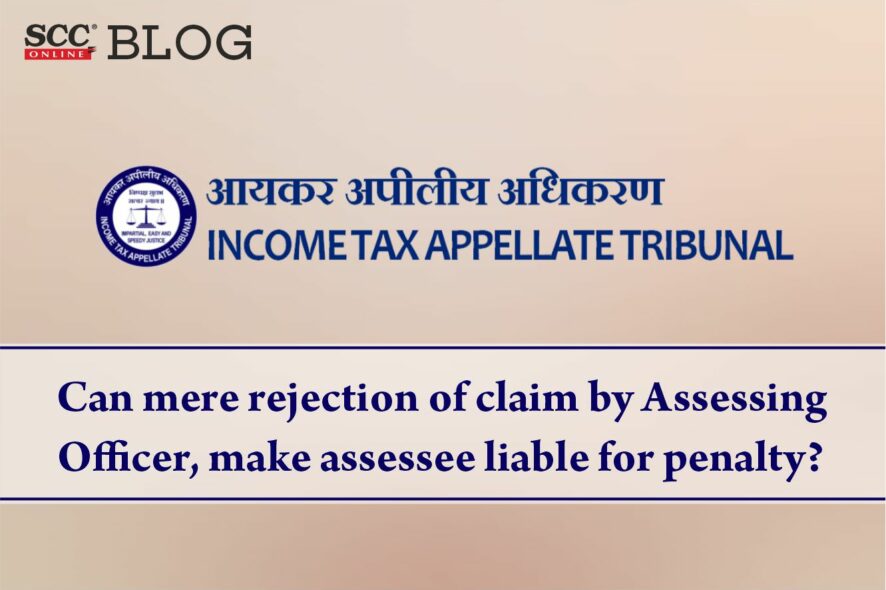Income Tax Appellate Tribunal, Delhi (ITAT): Addressing the issue, of whether mere rejection of the claim by an Assessing Officer would ipso facto make assessee liable for the penalty, the Bench of G.S. Pannu (President) and Kul Bharat (Judicial Member) held that it won’t make the assessee liable to a penalty.
Factual Matrix
An assessee had filed its return of income and the assessment under Section 143(3) of the Income Tax Act, 1961 was framed. Thereby, the income was assessed at Rs 2,13,61,910 after making additions in respect of the wrong claim of deduction under Section 24(a) of the Income Tax Act; disallowance of excess depreciation on vehicles and disallowance of interest under Section 36(1)(iii) of the Act.
A further appeal was carried out wherein the disallowance of interest under Section 36(1)(iii) of the Act was deleted.
Subsequently, the Assessing Officer issued a notice under Section 271(1)(c) of the Act to show cause why the penalty should not be levied, for which the assessee stated that deduction under Section 24(a) of the Act was claimed by the assessee through a bonafide and inadvertent error.
AO did not accept the contention of assesse that he had disclosed and furnished correct particulars of his income, hence penalty was levied.
Aggrieved with the above, the assessee preferred an appeal before the CIT (A) who sustained the penalty, therefore the assessee has appealed before this Tribunal.
Analysis and Decision
“There is no straight jacket formula to say that particular act was a bonafide error or another a deliberate act.”
The Bench noted that the assessee in the present matter had successfully demonstrated that the claim of deduction under Section 24(a) of the Income Tax Act, was made as the rent was offered for tax under the income from house property.
Hence, in view of the Supreme Court decision in Price Waterhouse Coopers (P) Ltd. v. CIT, (2012) 11 SCC 316 the penalty imposed by the AO on the stated issue could not be sustained, therefore, AO was directed to delete the penalty.
Tribunal found merit in the contention of the assessee that,
“…merely because of a claim is rejected by the Assessing Officer, would not ipso facto make the assessee liable for penalty.”
In the Supreme Court’s decision of CIT v. Reliance Petroproducts (P) Ltd., [2010] 322 ITR 588, the levy of penalty was not justified.
Therefore, the Tribunal directed the Assessing Officer to delete the penalty.
Further, it was added that since the notice did not specify the specific charge, hence in light of the Supreme Court decision in PCIT v. Sahara India Life Insurance Company Ltd., ITA No.475/2019, the initiation of penalty proceedings was not in accordance with law.
In view of the above, the appeal of the assessee was allowed. [Agarwal Packers & Movers Ltd., 2022 SCC OnLine ITAT 168, decided on 29-4-2022]
Advocates before the Tribunal:
For the appellant: Ruchesh Sinha, Advocate
For the respondent: Kirti Sankratyayan, Sr. Dr







